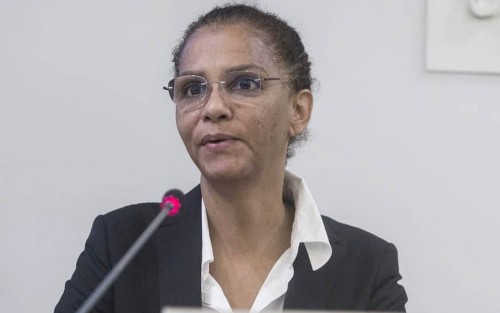FAO Warns of Possible Loss in Fish Revenue Due to Climate Change
BELMOPAN, Belize – A senior official of the Food and Agriculture Organization (FAO) is warning that climate change could precipitate an annual fish value loss of between US$1.2 to US$2.7 billion across Latin America and the Caribbean.
 Dr. Renata ClarkeAddressing the four-day virtual scientific conference organized by the Caribbean Regional Fisheries Mechanism (CRFM), Dr. Renata Clarke, the FAO Sub-Regional Coordinator said such losses underscored the need for building resilience in the fisheries and aquaculture sector.
Dr. Renata ClarkeAddressing the four-day virtual scientific conference organized by the Caribbean Regional Fisheries Mechanism (CRFM), Dr. Renata Clarke, the FAO Sub-Regional Coordinator said such losses underscored the need for building resilience in the fisheries and aquaculture sector.
“Fishing communities are most often vulnerable to hurricanes and floods. To save lives and enable fisherfolk to quickly restart their livelihoods, resilience needs to be built. We can do so through insurance schemes, social protection schemes, but also through making fisheries infrastructure climate-proof.
“Early warning systems, safety at sea training, adaptation of fishing vessels to the new reality are also investments that we need to make,” she added.
Earlier, Caribbean Community (CARICOM) Secretary General, Dr. Carla Barnett, had warned the fisheries sector of the region continues to experience numerous obstacles and setbacks.
“Climate change, ocean acidification, overfishing, pollution, sargassum blooms, the invasive pacific lionfish, and illegal, unreported and unregulated fishing, all place immense pressure on our marine fisheries and ecosystems. They also threaten the jobs and livelihoods of fisherfolk and the food security of our people.
“This scientific conference reiterates our call to all fisheries stakeholders to continue to embrace the spirit of collaboration, solidarity and inclusivity.
“Sustainable fisheries development and management require the active participation of all stakeholders, and use of the best available scientific data and information to guide decisions regarding fisheries development and conservation, as well as protection of the marine ecosystems and biodiversity in the marine environment,” Barnett said.
The conference will feature an estimated 130 authors and speakers from the Caribbean and internationally, who will present on nine thematic areas of high interest to the fisheries and aquaculture sector.
The CRFM said that the goal of the conference is to showcase the collective work done over the past two decades since its establishment while providing a space for networking, information exchange, and dialogue on a range of important topics.
The conference will also feature national reports from the 17 CRFM member states on the status of their fisheries and aquaculture industries.
CRFM executive director, Milton Haughton, said “we are very proud to host this conference which will highlight the importance of science, knowledge, innovation and international best practices as the basis of our actions and policies to ensure responsible development, management and conservation of our marine living resources and aquaculture”.
He said that the event will also help “sustainable future economic growth based on our ocean resources”.
Chair of the CRFM Ministerial Council, Avinash Singh said it was important for the CRFM to recommit itself to face the journey ahead, as it commemorates its 20th anniversary.
“Our collective vision for a sustainable, prosperous Caribbean region is within our reach. Let this conference be a beacon of hope, a platform for meaningful dialogue, and a catalyst for positive change,” said, Singh, the Minister in the Ministry of Agriculture, Land and Fisheries in Trinidad and Tobago.


